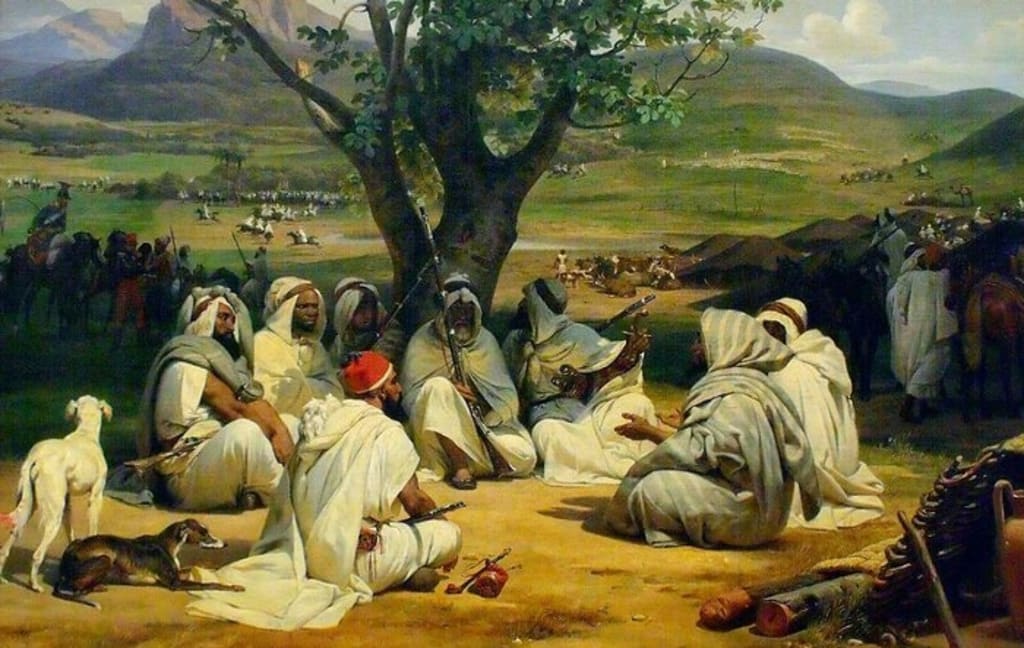History: of prophet Muhammad (ShwL)
**Prophet Muhammad: The Life and Legacy of Islam's Founder**

Prophet Muhammad, revered as the final prophet in Islam, holds a central and profound place in the hearts of over a billion Muslims around the world. His life, teachings, and the revelations he received form the cornerstone of the Islamic faith. This is the story of Prophet Muhammad, a man whose impact on the world continues to resonate across centuries.
**Early Life and Pre-Prophethood**
Prophet Muhammad, whose full name is Muhammad ibn Abd Allah, was born in the year 570 CE in Mecca, a city in present-day Saudi Arabia. His tribe, the Quraysh, belonged to the respected and influential Hashemite clan. Orphaned at an early age, Muhammad was raised by his grandfather, Abdul Muttalib, and later by his uncle, Abu Talib.
As a young man, Muhammad earned a reputation for his honesty and integrity, earning him the nickname "Al-Amin" or "The Trustworthy." He was known for his fairness in business dealings and was often sought after as a mediator in disputes among the Quraysh.
It was during his early years that Muhammad developed a deep sense of contemplation and spiritual reflection. He would frequently retreat to a cave in the mountains surrounding Mecca for solitude and prayer, seeking to understand the meaning of life and the world around him.
**The First Revelation**
At the age of 40, while in the Cave of Hira during one of his retreats, Muhammad received his first revelation from Allah (God) through the angel Gabriel (Jibril in Arabic). This event marked the beginning of his prophethood.
The first words of revelation were, "Iqra," which means "Read" or "Recite." Muhammad, who was initially overwhelmed by the experience, received a series of revelations over the next 23 years, which would later be compiled into the Quran, the holy book of Islam.
**The Message of Islam**
Muhammad's message was monotheistic, emphasizing the belief in one God, Allah. He called on the people of Mecca to abandon their polytheistic beliefs, which included the worship of idols, and to embrace the teachings of Islam. The core message was to worship Allah alone, show compassion to fellow humans, and uphold justice and righteousness.
Initially, Muhammad's message faced resistance and opposition from the Quraysh, who perceived it as a challenge to their authority and the city's status as a major pilgrimage site. The Prophet's followers, who came to be known as Muslims, faced persecution and even torture for their beliefs.
**The Migration to Medina**
In 622 CE, due to the increasing hostility and persecution faced by the Muslim community in Mecca, Muhammad, and his followers made a historic journey to the city of Yathrib, later known as Medina. This event, known as the Hijra, marked the beginning of the Islamic lunar calendar and holds immense significance in Islamic history.
In Medina, Muhammad established a thriving Muslim community and served as both a spiritual and political leader. He drafted a constitution known as the Constitution of Medina, which laid the foundation for religious tolerance and cooperation among various tribes and communities in the city.
**The Battle of Badr and Challenges**
The move to Medina did not bring immediate peace. Battles and conflicts continued between the Muslims and the Quraysh of Mecca. The most significant of these battles was the Battle of Badr in 624 CE, in which the outnumbered Muslims achieved a decisive victory. This event strengthened the resolve of the Muslim community and marked a turning point in their struggle.
Throughout this period, Muhammad continued to receive revelations from Allah, which were recorded in the Quran. These revelations provided guidance on various aspects of life, including ethics, morality, governance, and social justice.
**The Conquest of Mecca**
After years of conflict, the situation changed dramatically in 630 CE when Muhammad and his followers, now a formidable force, marched back to Mecca. The city surrendered without bloodshed, and Muhammad forgave those who had opposed him. The idols of Mecca were removed from the Kaaba, and the city became a center of monotheistic worship.
**The Farewell Pilgrimage and Passing**
In his final years, Prophet Muhammad delivered his Farewell Sermon during his last pilgrimage in 632 CE. In this sermon, he summarized the core principles of Islam, emphasizing the equality of all Muslims and the importance of justice and compassion.
Shortly after the pilgrimage, on the 12th of Rabi' al-Awwal in the year 632 CE, Prophet Muhammad passed away in the city of Medina. His death marked the end of his prophethood, but his legacy lived on through his teachings, the Quran, and the Muslim community he had established.
**Legacy and Impact**
Prophet Muhammad's legacy is profound and multifaceted. His life and teachings continue to influence the lives of Muslims worldwide. Here are some key aspects of his legacy:
1. **The Quran**: The Quran is considered the literal word of God as revealed to Prophet Muhammad. It serves as a guide for Muslims in matters of faith, ethics, law, and morality.
2. **The Hadith**: Hadiths are collections of sayings, actions, and approvals of Prophet Muhammad. They provide additional guidance on how to practice Islam and understand the Quran.
3. **The Five Pillars of Islam**: These fundamental acts of worship, including the declaration of faith (Shahada), prayer (Salat), almsgiving (Zakat), fasting during Ramadan (S
About the Creator
Abdou jagne
Muslim 🕋.
Proud Gambian🇬🇲
History : writer
($Vocal)
Follow my IG https://vocal.media/history/burna-boy-history






Comments (1)
Waaw thanks so much for the story 🕋🙏🙏